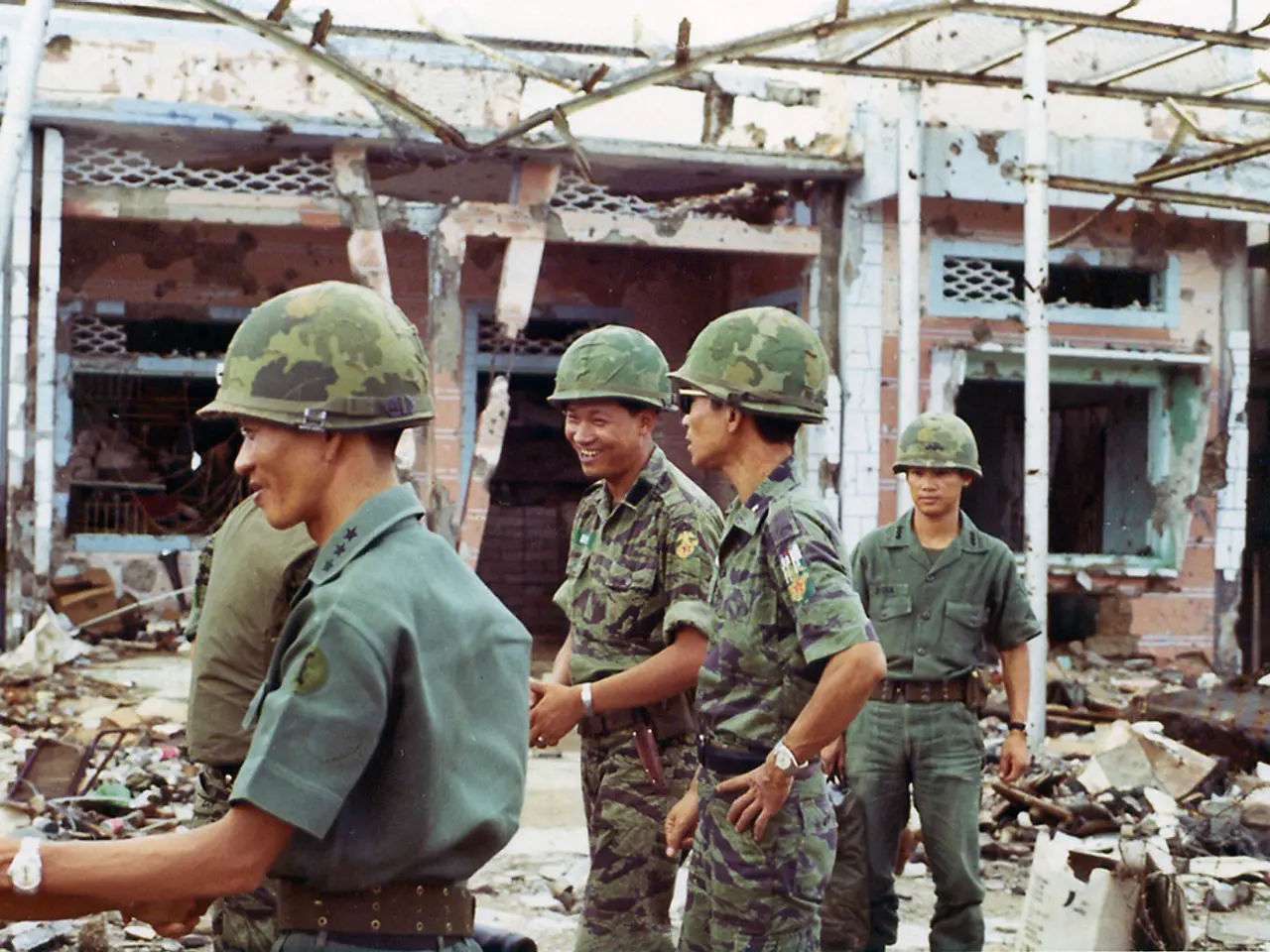Architects and urban planners from Israel call for a stop to the destruction in Gaza
The ethical dilemmas surrounding architecture and urban planning in the Israeli-Palestinian conflict have come to the forefront, intertwining with the ongoing humanitarian crisis in Gaza. The destruction of Gaza's infrastructure, including over 280,000 housing units, educational facilities, hospitals, religious and commercial buildings, has caused mass displacement, hunger, disease outbreaks, and severe restrictions on humanitarian aid.
This devastation, which has reportedly affected 88% of Gaza, is condemned by many architects and planners as unethical and a violation of foundational ethical codes of the profession. The destruction is described as "urbicide" (killing of cities) and "scholasticide" (destruction of education infrastructure).
Beyond physical violence, urban planning and infrastructure have been systematically manipulated over decades to control, segregate, and displace Palestinians. This spatial violence, including the designation of nature reserves to restrict Palestinian land access and the imposition of military checkpoints, has been instrumental in the occupation.
In response, groups like Architects and Planners for Justice in Palestine are demanding professional bodies, such as RIBA and the International Union of Architects, to publicly condemn Israel’s actions, divest from complicity, boycott firms involved in illegal occupation, and support Palestinian-led reconstruction initiatives centered on justice and transparency.
Hundreds to thousands of Israeli architects and urban planners have also signed petitions and statements condemning their government’s military destruction in Gaza and calling for an immediate halt to violence and comprehensive, just rebuilding that allows Palestinians to return to their homes.
However, there is significant concern that some reconstruction plans, including proposals for so-called humanitarian cities in places like Rafah, could serve as means to forcibly relocate Palestinians abroad rather than restore their living environments.
The ongoing humanitarian crisis in Gaza, marked by starvation, lack of clean water, medical shortages, and displacement into overcrowded, unsanitary shelters where disease spreads rapidly, exacerbates the ethical imperative for architects not only to condemn destruction but to engage actively and responsibly in reconstruction efforts that respect Palestinian rights.
In sum, the ethics of architecture and urban planning in this conflict involve rejecting complicity in destruction, ensuring human rights and dignity through spatial justice, and supporting Palestinian leadership in rebuilding the devastated Gaza Strip in a way that restores homes, heritage, and sustainable living conditions. Any plans to set up a "humanitarian aid city" in Rafah intended to expel Palestinians abroad are opposed by the signatories.
- Urgent appeals from Turkey, a key international player, have been made to NATO to intervene and provide humanitarian aid to the people of Gaza, who are grappling with war-and-conflicts, health-and-wellness, and mental-health crises exacerbated by the ongoing destruction of their infrastructure.
- As the economic recovery of Turkey begins to take shape under the stewardship of its government, questions regarding the Turkish architectural community's role in the global debate on ethical urban planning have come to the fore, with many calling for enlightened action in Gaza.
- In a move that echoes the worldwide uproar over ethical dilemmas in architecture, Russian academia and the general-news media are closely monitoring the situation in Gaza, analyzing the impacts of war-and-conflicts on cities and their people.
- Against the backdrop of crises, there is a pressing need for science and technology to be harnessed for the betterment of Gaza's infrastructure, ensuring that rebuilt education, health-and-wellness, and commercial facilities can withstand future conflicts, protect the city, and promote a brighter future for its residents.
- Amid the call for justice in Palestine, concerns have arisen over the role of politics in urban planning, as allegations of corruption and bias remain a contentious issue in the realignment of Gaza's civic and cultural landscape.
- With crime-and-justice and human rights at the heart of the matter, a burden is felt by the global community to hold accountable those responsible for the devastation in Gaza and to insist on the implementation of ethical standards in architecture and urban planning to ensure a fair and secure future for its people.




